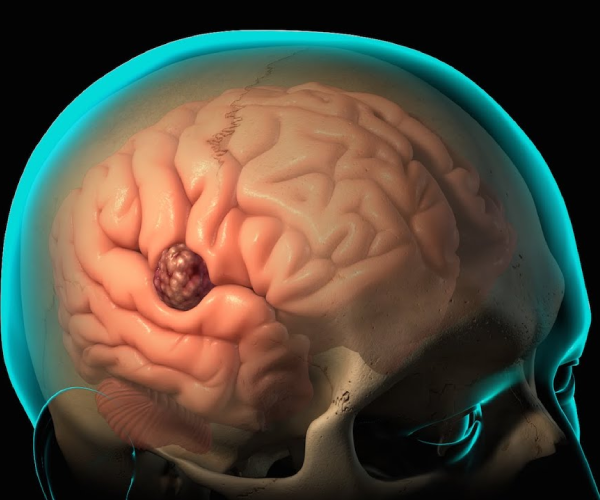
What to Expect During Brain Tumor Surgery: A Patient's Guide
Brain tumor surgery is a complex procedure designed to remove or reduce tumors within the brain. For patients facing this surgery, it’s common to feel anxious and unsure of what to expect. This guide walks you through the stages of brain tumor surgery, providing insight into the process, preparation, and recovery to help ease your concerns and empower you with knowledge.
Understanding Brain Tumor Surgery
Brain tumor surgery is primarily intended to:
- Remove the tumor or a part of it to relieve symptoms.
- Obtain a tissue sample for diagnostic purposes.
- Reduce tumor size, which can make subsequent treatments like radiation or chemotherapy more effective.
Neurosurgeons use advanced techniques to ensure maximum tumor removal while protecting brain function. The type of surgery and the approach will depend on the tumor’s location, type, and size, as well as the patient’s overall health.

Preparing for Brain Tumor Surgery
Preoperative Assessments
Before surgery, you'll undergo several assessments to ensure the best surgical outcome and to tailor the procedure to your needs. These assessments may include:
- Imaging tests such as MRI or CT scans: to visualize the tumor's size, location, and relation to brain structures.
- Functional mapping: if the tumor is near critical brain areas (like those controlling speech or movement), to pinpoint areas to avoid during surgery.
- Blood tests and other physical exams: to confirm your health status and to plan for anesthesia.
Meeting Your Surgical Team
You'll meet with your neurosurgeon, anesthesiologist, and other team members who will be part of your surgery and recovery. They will explain the procedure, potential risks, and expected outcomes, as well as answer any questions.
Discussing Medications and Preparations
You may be advised to:
- Stop taking certain medications, particularly blood thinners, a few days before surgery.
- Use special antiseptic solutions on your scalp to minimize infection risks.
- Plan to fast for several hours before the procedure, depending on when surgery is scheduled.
Types of Brain Tumor Surgeries
The approach your surgeon uses will depend on the tumor’s size, type, and location:
-
Craniotomy
The surgeon creates an opening in the skull to access the tumor. Once the tumor is removed or reduced, the skull bone is replaced.
-
Endoscopic Surgery
A minimally invasive approach using an endoscope (a thin tube with a camera) inserted through a small incision. This is ideal for some tumors, particularly those near the brain's base.
-
Laser Interstitial Thermal Therapy (LITT)
This technique uses laser energy to heat and destroy the tumor tissue. It’s typically used for small, hard-to-reach tumors.
The Day of Surgery
Arriving at the Hospital
Arrive at the hospital as scheduled. After check-in, you'll be taken to a preoperative area where medical staff will prepare you for surgery by:
- Reviewing your health status and checking vital signs.
- Administering any necessary medications or intravenous fluids.
- Ensuring that all imaging and surgical plans are ready.
Anesthesia and Sedation
Brain tumor surgeries are typically done under general anesthesia, meaning you’ll be asleep and pain-free throughout the procedure. However, in some cases, "awake brain surgery" may be necessary.
Immediate Postoperative Care
After surgery, you’ll be moved to the recovery room or an intensive care unit (ICU) for close monitoring. Here’s what to expect in the immediate aftermath:
- Neurological checks: Medical staff will conduct regular checks to assess your neurological function, ensuring that speech, vision, and motor functions are intact.
- Pain management: You may experience headache or discomfort, and pain medication will be provided as needed.
- Preventing complications: To prevent complications like blood clots, you may be given anticoagulants or compression devices for your legs.

Long-Term Outlook and Next Steps
The outlook after brain tumor surgery depends on several factors, including the type and stage of the tumor. For some patients, surgery may fully remove the tumor, while others may require additional treatments like radiation or chemotherapy to address any remaining tumor cells.
Final Thoughts
While brain tumor surgery can be intimidating, understanding what to expect can empower you to approach it with confidence and resilience. Being informed, preparing physically and mentally, and knowing you’re supported by a dedicated medical team can make a meaningful difference in your journey.

Dr. Adam Kamrudeen
Neurosurgeon in Navi Mumbai
- MBBS, MS – General Surgery,
- MCh – Neuro Surgery
- Brain & Spine Surgeon in Navi Mumbai
Conclusion
Consulting with Dr. Adam Kamrudeen, a skilled neurosurgeon in Navi Mumbai, is crucial if you're dealing with spondylosis. This degenerative condition of the spine can cause significant pain and mobility issues. Dr. Adam Kamrudeen will assess your condition and explain the surgical and non-surgical treatment options available, including minimally invasive techniques to relieve pain and restore function.
Schedule a consultation with Dr. Adam Kamrudeen to explore the best approach for managing spondylosis and improving your quality of life.
